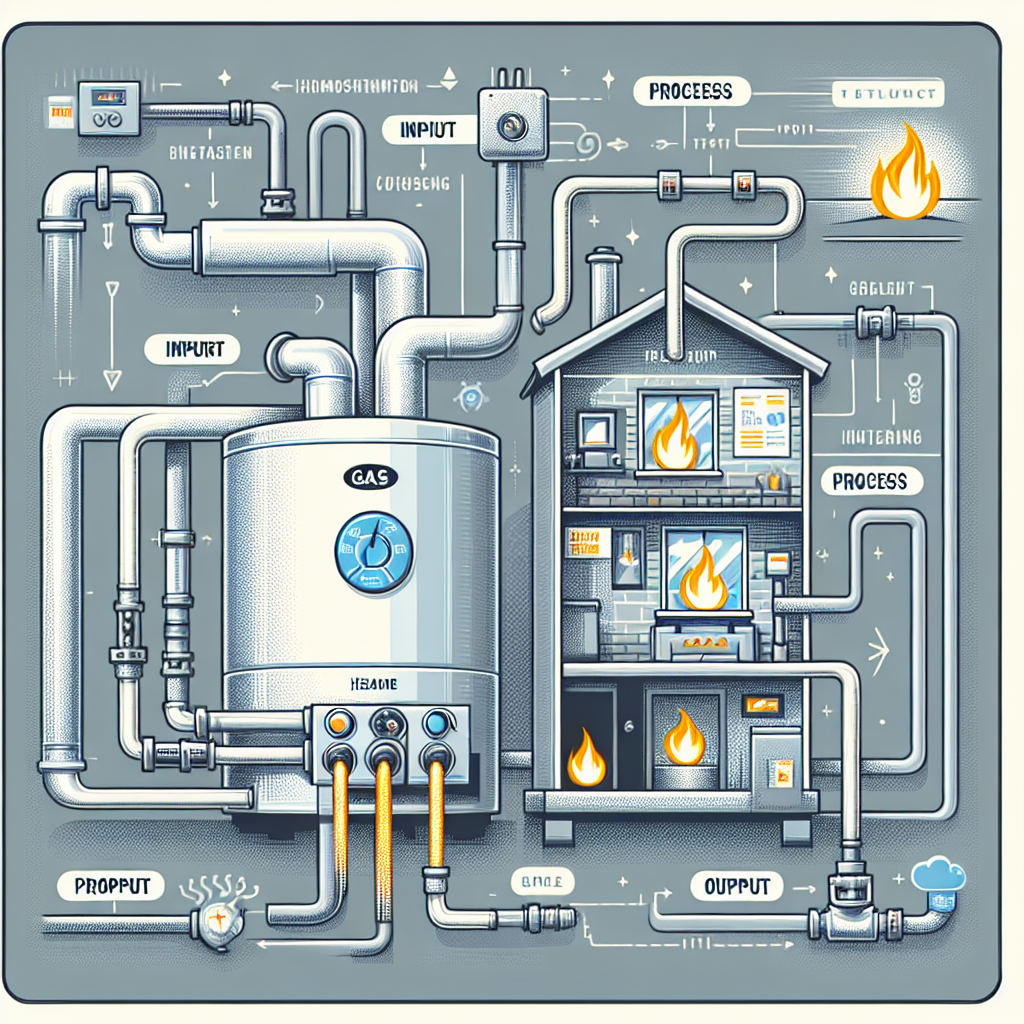When it comes to maintaining a comfortable indoor environment during the colder months, gas heating systems stand out as an efficient and reliable option. Whether you’re considering installing a new system or simply want to understand how your existing one works, this guide will provide you with all the essential information you need about gas heating systems.
What Is a Gas Heating System?
A gas heating system utilizes natural gas or propane as fuel to generate heat. The process typically involves a furnace or boiler that heats air or water, which is then distributed throughout your home. One of the primary advantages of gas heating systems is their efficiency, as they can provide significant warmth at a lower cost compared to other heating methods.
Types of Gas Heating Systems
1. Gas Furnaces
Gas furnaces are one of the most common types of gas heating systems. They work by heating air and distributing it through ductwork using a blower fan. Available in various sizes, gas furnaces can efficiently warm homes in just a matter of minutes. Understanding the AFUE (Annual Fuel Utilization Efficiency) rating is crucial, as it indicates how efficiently the furnace converts gas into heat. A higher AFUE means greater efficiency, leading to lower energy bills.
2. Gas Boilers
Unlike furnaces, gas boilers heat water rather than air. This hot water is then circulated through radiators or underfloor heating systems. Gas boilers can be particularly effective for homes with existing radiator systems. They offer a consistent level of comfort by providing even heat distribution.
3. Gas Space Heaters
Space heaters are a more localized heating option, ideal for single rooms or areas that require additional warmth. They come in various styles, including wall-mounted, portable, and vent-free units. Space heaters can be a cost-effective solution for heating small spaces without the need for a full system installation.
How Do Gas Heating Systems Work?
The operation of a gas heating system can vary slightly depending on the type, but the fundamental principle remains the same.
-
Ignition: The system ignites gas, which is mixed with air to create a flame. Modern systems use electronic ignition for enhanced efficiency and reliability.
-
Heat Generation: In a furnace, the heat exchanger warms the air, while in a boiler, the burners heat the water.
-
Distribution: Heated air is pushed through ductwork or hot water is circulated through pipes to provide warmth.
- Thermostat Control: Your thermostat allows you to control the temperature, ensuring that your home remains at a comfortable level.
Advantages of Gas Heating Systems
Energy Efficiency
Gas is often more affordable than electricity, making gas heating systems more cost-effective in the long run. Additionally, they typically have higher efficiency rates compared to electric systems.
Environmental Impact
Natural gas emits fewer pollutants than other fossil fuels, making it a cleaner choice for heating your home. Many gas systems are designed to minimize emissions further.
Reliability
Gas heating systems are known for their reliability. Unlike electric heating systems that may falter during power outages, gas systems can continue to function, ensuring your home stays warm even in emergencies.
Maintenance Tips for Gas Heating Systems
To ensure your gas heating system operates efficiently and safely, regular maintenance is essential:
-
Annual Inspections: Have a qualified technician check your system annually. They will inspect for potential issues, clean critical components, and ensure everything is functioning correctly.
-
Change Filters Regularly: Dirty filters can hinder airflow, reducing efficiency and potentially damaging your system. Check and replace filters every 1-3 months.
-
Ventilation Checks: Ensure that flue pipes and vents are clear of obstructions. Proper ventilation is crucial for the safe operation of gas heating systems.
- Keep the Area Clear: Ensure the area around the furnace or boiler is free of clutter to allow for proper airflow and prevent fire hazards.
Common Concerns and FAQs
Is gas heating safe?
Yes, gas heating systems are generally safe when properly maintained. Regular servicing will help prevent risks like carbon monoxide leaks.
How long do gas heating systems last?
With proper maintenance, a gas furnace or boiler can last anywhere from 15 to 30 years, depending on the model and usage.
What should I do if I smell gas?
If you smell gas, evacuate the area immediately and contact your gas utility provider. Never attempt to locate the leak yourself.
Conclusion
Understanding gas heating systems can empower you to make informed decisions about your home’s heating needs. From the benefits associated with efficiency and environmental impact to maintenance practices that keep your system running smoothly, this comprehensive guide serves as a valuable resource. As always, if you’re ever in doubt or need professional assistance, consult a qualified technician to help you with your gas heating solutions.
Next time you cuddle up under a warm blanket on a chilly night, remember the gas heating system working diligently to keep your home cozy and inviting!


